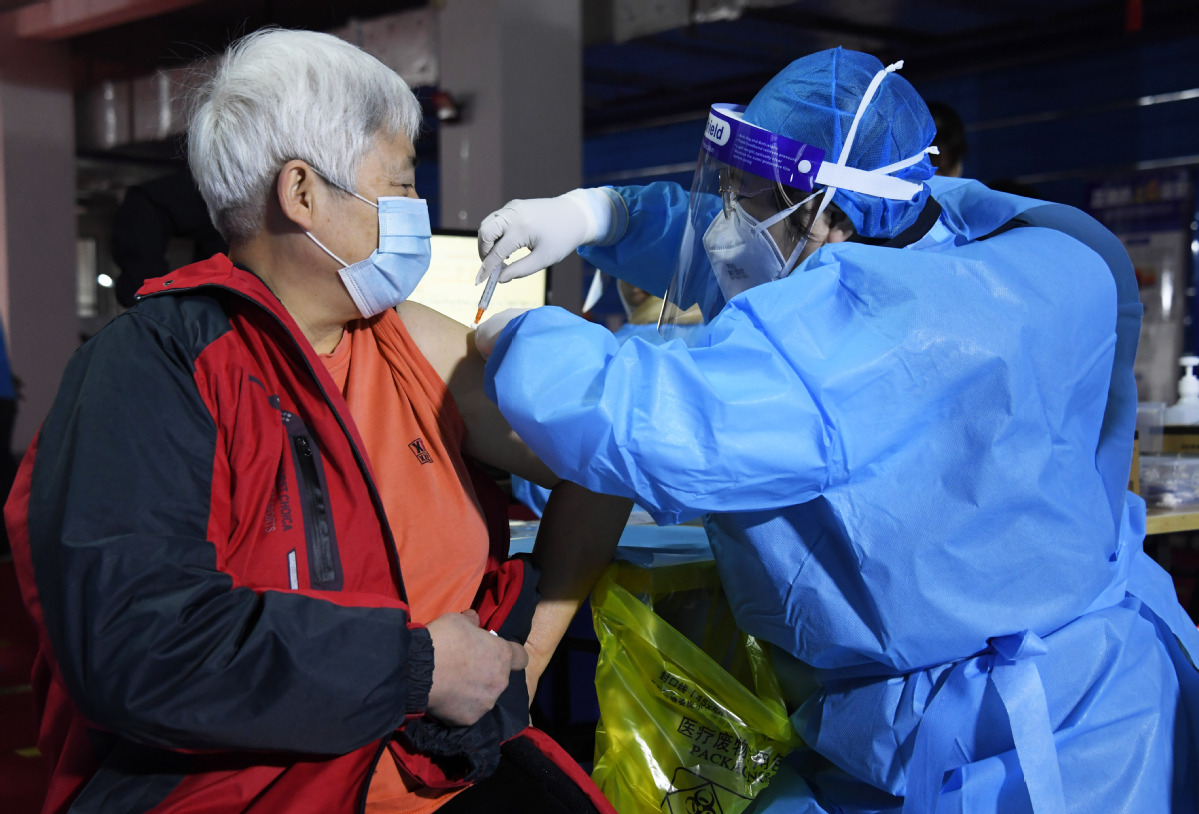Vaccination action plan to target elderly


China rolled out an action plan on Tuesday to speed up COVID-19 immunization of the elderly — especially those aged 80 and above — as vaccinations in the highly vulnerable group lag behind the general population.
The plan, released by the State Council's Joint Prevention and Control Mechanism, adjusts the booster vaccination protocol, and requires localities to extensively survey senior populations and ramp up services and awareness campaigns.
Xia Gang, a National Administration of Disease Prevention and Control official, said that COVID vaccines have demonstrated good protection against severe illness and death.
"The elderly and other susceptible groups are at high risk of becoming serious and critical cases, and even dying, so they are set to benefit the most from receiving vaccines," he said at a news conference.
Chang Zhaorui, a researcher at the Chinese Center for Disease Control and Prevention, said that although the dominant strain of Omicron and its subvariants have proved to be milder than the original novel coronavirus and the Delta strain, people with preexisting illnesses, the elderly and unvaccinated people are still likely to develop severe symptoms.
As of Monday, the mainland had fully vaccinated over 1.27 billion people, or 90.28 percent of the population, and delivered booster shots to about 811 million, according to the National Health Commission.
However, the vaccination rate of the elderly is lower. Of people aged 60 and above, a total of 86.4 percent had completed primary vaccination, while the percentage was 65.8 for those aged 80 and over.
About 181.5 million people aged 60 and above, and 14.5 million aged 80 and above had received a booster shot.
To accelerate vaccination, the required period between primary vaccination and getting a booster has been reduced from six months to three months. The decision to make the reduction is based on studies and clinical data, the document said.
The plan said that all vaccines approved for booster shots — including a nasal spray — can be coupled with any kind of vaccines used for initial inoculation, which will provide a total of six immunization combinations.
Vaccination work should be strengthened at key venues, such as elderly care and learning facilities and recreational centers, as well as for gatherings and tour groups involving a large number of seniors.
Local governments should use big data tools to identify the number of elderly people in their jurisdictions and evaluate their condition to rule out those who are not suitable for vaccination.
Immunization services should also be made more convenient for the elderly, including setting up expedited channels for seniors, while the deployment of mobile vaccination vehicles should be maintained, the plan said.
Health education material tailored to the elderly should be distributed to highlight the safety and efficacy of vaccines and the pressing need to get vaccinated.
Xia said that because a large number of the elderly in China have disabilities, local governments should arrange for experienced medical workers to offer door-to-door services to answer their questions and monitor their health condition more closely.
- Legal tools essential for AI regulation
- China launches remote-sensing satellite for Algeria
- China reports drop in workplace accidents, fatalities in 2025
- From Kansas to karst: Unpacking Guangxi's charms
- China carries out nearly 8.5m hectares of land greening in 2025
- Chongqing red leaf festival draws record 4.7 million visitors




































